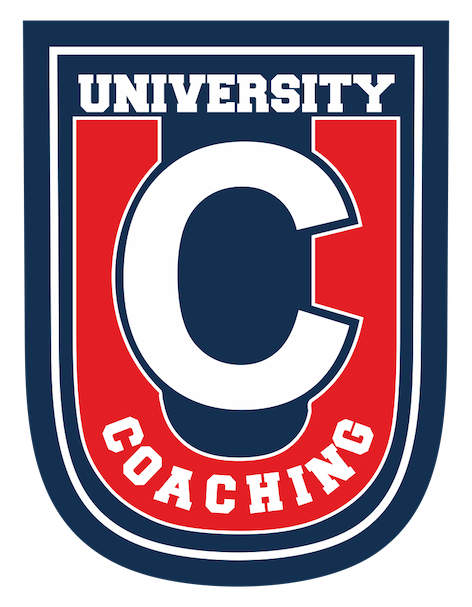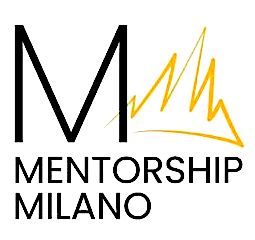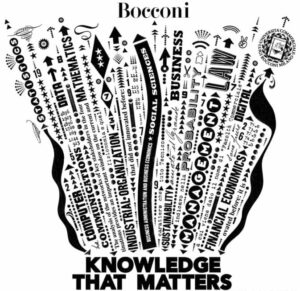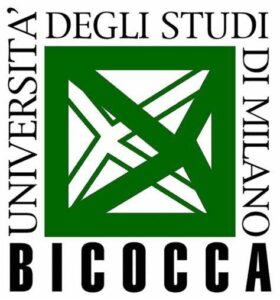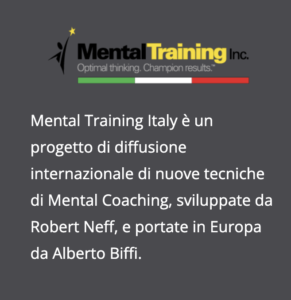Sono Ilaria Carofiglio neo Laureata triennale in International Economics and Management presso l’Università Commerciale Luigi Bocconi, ho ventuno anni compiuti questo 30 Aprile e sono già laureata perché ho frequentato la primina. La mia infanzia ed adolescenza sono state segnate da due grandissime opportunità, quella di viaggiare all’estero da sola e con i miei genitori e quella di non aver trascorso un giorno senza un obiettivo sportivo agonistico. Queste esperienze ricorrenti mi hanno fatta crescere con la giusta apertura mentale e tanta determinazione, disciplina e precisione. Lo sport, senz’altro, è stata la palestra di vita che mi ha insegnato di più. Prima essendo una prodiera dell’imbarcazione a vela 4.20 per il Circolo della Vela Bari e in seguito come atleta mezzofondista dei 400m e 800m per il CUS Bari ho imparato a relazionarmi in gruppo e con gente di ogni età, a gestire le emozioni, a fare sacrifici e studiare fino a tardi e a controllare il mio fisico e la mia alimentazione. Tutto questo, insieme ad un bagaglio immenso di esperienze e ricordi, non sarebbe stato possibile senza i miei coach e compagni di squadra.
Con la parola Coach intendo già parlare di allenatore-coach e mental-coach. Nella vela ho avuto la possibilità di essere seguita da due figure e portare avanti l’allenamento fisico e mentale di pari passo; nell’atletica ho avuto la fortuna di avere un coach in grado di essere entrambi in maniera eccellente così da continuare la carriera agonistica nel migliore dei modi. Dopo titoli regionali e nazionali, la carriera finisce bruscamente in seguito ad un brutto infortunio sul campo di atletica Propatria a Milano il 29 Settembre 2017, mi ero appena trasferita in città per frequentare l’Università. Col senno di poi questo avvenimento mi ha messa davanti ad una scelta che avrei dovuto prendere ugualmente: la carriera universitaria o quella sportiva. Convinta di voler continuare gli studi senza sottrarre il tempo per gli allenamenti e le gare decido di iscrivermi al corso di Mental Coaching di Primo Livello con Bocconi Sport Team tenuto da Amanda ed Alberto, vedendo in questa esperienza un’occasione per continuare a far parte di quel mondo e imparare ad applicarne tutti gli insegnamenti in contesti futuri, professionali e non.
Il corso si è rivelato anche meglio delle aspettative e mi ha fatta appassionare al mental coaching al punto di renderlo il mio argomento di tesi, unendolo a ciò che avevo studiato in triennale. Da qui nasce lo studio portato avanti insieme al Professor/Coach Biffi sul panorama italiano del Corporate Coaching (qui di seguito un estratto). La ricerca empirica si è svolta grazie all’aiuto di 20 coach italiani che hanno condiviso la loro preparazione ed esperienza con me tramite un questionario di 30 domande volto ad identificare in quale stadio si trova l’industria del coaching in l’Italia, quanto è chiaro il suo significato e le differenti tipologie, la professione stessa e le dinamiche di domanda ed offerta.
*** *** ***
When I had to decide on what to write my bachelor dissertation an idea immediately came up to my mind. Coaching has been a passion and an ongoing journey in the last years, starting from my agonistic career in sailing and running and afterwards with University Coaching and Bocconi Sport Team. The 1st level mental coaching course gave me the necessary skills and framework to deeply understand what is coaching and to be able to analyze the topic with professionals on a national level. Coaching in Italy is a topic which needed more literature analysis and research, therefore I decided to focus my study on the different conceptualizations of coaching, in particular that of corporate coaching. The thesis, realized with the peculiar help of Professor/Coach Biffi and twenty players of the market that answered to a detailed questionnaire, is entitled: “The Corporate Coaching industry in Italy: the voice of practitioners”.
Following I selected the most relevant parts of the analysis and discussion that shed a light on the stage of the coaching industry in Italy nowadays with some prospects for the upcoming future.
“In order to support the argument that the lack of knowledge on corporate coaching in Italy starts from its basic conceptualization, the primary and secondary data first analyzed regard the pure definitions of coaching and corporate coaching. As shown in the literature chapter, coaching lacks a universally agreed definition. Starting from the 1970s, researchers and coaching associations have elaborated different definitions and conceptualizations of coaching. Each of these somehow complements the others, but with an emphasis on different aspects from time to time, like potential, performance, skills, or personal development. This leads to the proliferation of a series of services that are offered under the umbrella of “coaching”, which actually consists of very heterogeneous practice (Interviewee 2 – Mental & Sport Coach). Every time coaching is used in a new area, a new label is created, to the point that potentially a new label exists for every goal a client wants to achieve. The data shows that there is an infinite list of possible labels (Brefi Group Limited, 2017) and it is not clear where one type of coaching ends and the other begins. For instance, during a corporate coaching session one might talk about life issues too, vice versa during a life coaching session one might talk about work-related issues, and so on. Overall, the lines between all the coaching practices are blurred and there are no straightforward answers for the questions: “What is Coaching? And Corporate Coaching?”. An encompassing answer is that coaching is a relational encounter between people aimed at developing the coachee’s potential through powerful questions in the context of the specific coaching subheading. After a complete outline of the literature and the data on the corporate coaching practice, it is important to understand what is the objective of this practice and the intentions of the players involved in it. The primary and secondary data shows that organizations implement coaching for different reasons. It is mostly done for employees’ development purposes, in particular to develop technical, leadership, behavioral competences, and improve performance; but the main reason appears to be related to complexity, transformations, and change management (Institute of Leadership & Management, 2017). Coaching is seen as an accelerating and facilitating tool that helps managers and employees adapt quickly to new processes, higher complexity, and changed business environment, it is mostly demanded by companies in case of necessity for people’s role development or problem-resolution, rather than as part of standard formation and people management. On the side of the corporate coaches the intentions are more genuine in terms of delivering the same service offered to an individual, with the same life-changing aim, simply in a different context. These differences can be considered in conflict sometimes but if there is a clear value proposition at the beginning of the coaching program and shared objectives are coherent and clearly stated the practitioners see no conflict arising during the process. […..]
Given that the industry is regulated by word of mouth, which companies trust this medium and take advantage from coaching? Counterintuitively, not the ones located where there is the highest concentration of coaches and people that tried this service, but the ones with the right mentality. The right mentality is an open mentality that recognizes the change in leadership that characterizes the last decade and favors a more people-centric approach as opposed to the traditional results-centric one. A mentality that recognizes the long-term importance of having a cohesive team that works at its best attitude and capabilities. Although, the majority of Italian businesses is constituted by small-and-medium family owned enterprises, where there is a deeply-rooted mentality which is reluctant to change, to the recognition of the need of help from outsiders and to the admission of weaknesses by leadership figures, all necessary characteristics to challenge the status-quo and favor questioning and people’s development at all levels, starting from the top ones and favoring the critical process of generational succession. For the ones that already have such mentality, further obstacles characterize the corporate coaching process. The lack of regulations and standard requirements poses a further threat to the selection and professionalization of coaches, who are not perceived as professionals and need to legitimize their work. The 2011 study from Rasmussen & Bollerup-Jensen showed that coaching was on its way to becoming a profession, but after nine years no universal regulations have been adopted yet. Instead, what we see is many attempts of self- regulating the industry done by the different coaching associations. They define their own accreditations, ethical codes, and standard requirements. However, different attempts of self-regulation generate even more ambiguity, since it is difficult to compare the value of coaches who have received different trainings and hold different credentials from different associations. Therefore, if on the one hand it is true that associations help serious coaches stand out from unserious ones, on the other, they do a poor job in dispelling this ambiguity. […….]
To conclude the analysis, all the gathered information brings back to the aim of the paper, defining to which extent Italian businesses recognize the investment in people and take enabling steps to manifest it under the form of coaching programs. In Italy, the primary and secondary data lead to the classification of the corporate coaching industry in the growth stage (fig 1) among the four ones proposed to the interviewees. Precisely, at the beginning of the growth stage, since the number of businesses adopting this practice is rising, but at the same time many others are still unaware of its existence. The prospects for the future are very optimistic, in the next 2 years there will be a consolidation of the coaching practice within multinational companies and in 5 to 10 years within small and medium enterprises, fastened by the ongoing covid-19 crisis that has shaken up many inefficiencies of the Italian market in favor of a smarter, faster and more holistic approach. Although, to see this change happening a big responsibility lies within coaches themselves, that have to spread more awareness about this practice, and within institutions that should recognize the value created by coaching and therefore move forward with standardization for the benefit of the industry as a whole.”

